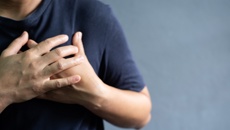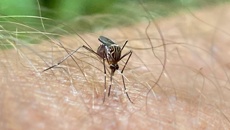A Middlemore Hospital worker is in quarantine following a "PPE protocol incident" relating to the management of a Covid-19 patient, who was flown from Fiji to New Zealand.
The Ministry of Health said the Middlemore Hospital-based worker was moved to quarantine as a precaution after they were unable to easily quarantine at home.
The breach was considered "minor" and other protections were in place.
"No one else was affected and any risks from this incident are low. The health professional is fully vaccinated," a ministry spokesperson said on Friday night.
"Once the incident occurred, the individual reported it immediately, sought advice and began taking the appropriate steps to manage any possible risks."
The DHB was supporting the individual concerned and the incident would be reviewed in line with usual protocol.
The Covid-19 patient flown from Fiji to New Zealand seeking medical treatment remains in a critical condition.
While doctors don't know what strain of the virus the woman has, they are treating it as if it is Delta.
The woman, a United Nations worker in her 60s, was transferred to New Zealand cocooned in an "Isopod" - a negative pressure capsule - while aircrew donned full protective wear to safeguard against infection.
Middlemore Hospital chief medical officer Peter Watson said the New Zealand Air Ambulance-coordinated flight went exactly as planned with the patient now in a negative pressure isolation room in the hospital's intensive care unit.
"There's a bubble made up of everyone at Middlemore Hospital who will be involved in the patient's care. Right now, the patient is only being cared for by our critical care team."
A request to fly to New Zealand for treatment earlier this week was initially rebuffed by the Ministry of Health before the decision was reversed days later.
The flight touched down in Auckland 6.30pm last night and the patient arrived at the South Auckland hospital just before 8pm.
New Zealand Air Ambulance Service chief executive Annabel Toogood said the biggest challenge of the flight was not the clinical management of the patient but the co-ordination of multiple agencies across both New Zealand and Fiji to ensure a seamless transfer.
Toogood said a highly skilled team of three comprising of an intensive care doctor, a senior flight nurse and Isopod specialist paramedic carried out the mission wearing full personal protective equipment throughout.
"The Personal Protective Equipment and Infection Prevention and Control procedures used by our team for this transfer exceed those used by hospital-based clinical staff caring for Covid-19 patients and in addition our crew are all fully vaccinated and subject to the most stringent testing procedures."
Isopod capsules were designed for the transfer of patients with highly contagious infectious diseases, she said.
"Although its use is not mandated for the transfer of Covid-19 patients we elected to use it for this transfer to provide an extra layer of redundancy in our Infection Control procedures."

The air ambulance flight with a UN staffer suffering from Covid-19 touches down at Auckland Airport. (Photo / Hayden Woodward)
The aircraft and equipment used for the flight had undergone stringent cleaning, including hard surfaces being doused in a hospital-grade hard-surface disinfectant.
The aircraft had also been "fogged" with Nanocyn which provided for additional disinfection of the entire aircraft interior, she said.
Soon after landing people in white suits could be seen on the tarmac while an ambulance was parked next to the plane.
A person sitting in the cockpit could be seen wearing full personal protection clothing.
Former Prime Minister Helen Clark, also a former United Nations Development Programme boss, said the woman's mercy flight had been requested by the UN.
"I have total confidence in Middlemore Hospital and its first class ICU. They have done an outstanding job throughout the pandemic and indeed during all emergencies to which they respond," Clark said.
"In this case, Counties Manukau and Middlemore have stepped up to respond to a UN request, which will be hugely appreciated by the UN and the patient and her family. NZ is the first port of call for Medevac by the UN in the Pacific and all costs are met in full by it.
"Many people worked together to make this Medevac possible. Particular thanks are due to Counties Manukau DHB and ICU at Middlemore."
The health ministry said requests for medical treatment in New Zealand from overseas jurisdictions, particularly in the Pacific, were common.
"Every request is considered, carefully taking into account factors such as the clinical needs of the patient, whether safe transport can be arranged and the availability of appropriate care in New Zealand."
Take your Radio, Podcasts and Music with you









